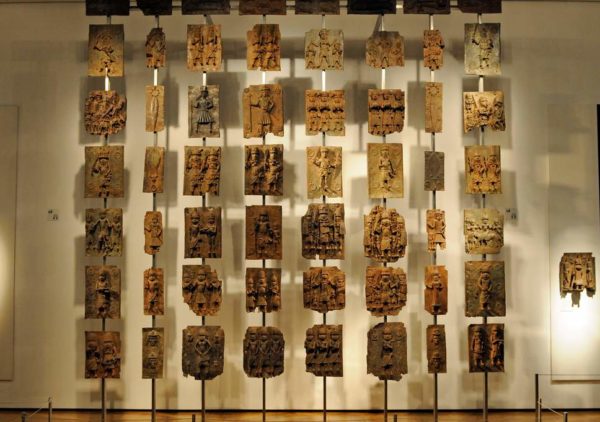
Nearly 200 of the stolen artifacts went to the British Museum while others were sent to museums in Cambridge and Oxford. (Photo by Son of Groucho/Flick)
Nigerian officials are reportedly open to the idea of borrowing back treasures stolen from them by British imperialists centuries ago, rather than demanding their permanent return.
According to The Independent, some U.K. museums are considering the temporary return of what is known as the Benin Bronzes, a collection of intricately-designed sculptures and plaques in bronze, ivory, ceramic and wood that adorned the Kingdom of Benin’s royal palace. The treasures were swiped from the African nation during a punitive expedition by British forces in 1897, during which Benin City was looted and burned to the ground.
Nigeria has been demanding the return of the bronzes ever since it gained its independence from Britain in 1960 but to no avail.
Like Ethiopia’s Maqdala Treasures, the Benin Bronzes are among a trove of stolen artifacts Britain has been reluctant to return, often on the grounds of legislation banning museums from permanently disposing of their collections, the Independent reported. Other governments, including Ethiopia and Greece, have scoffed at the idea of borrowing their own stolen property and demanded full returns — not loans. Nigerian officials have decided to take a different approach, however.
Godwin Obaseki, governor of the Nigerian state of Edo where Benin City is located, said he’s responded positively to British museum officials’ offer of returning the treasures on loan. After their plunder, 200 of the bronzes were taken to the British Museum while others were sent to museums in Cambridge and Oxford, The Telegraph reported. Others wound up in various institutions across the U.S. and Europe.
“Whatever terms we can agree to have them back so that we can relate to our experience, relate to these works that are at the essence of who we are,” Obaseki said. “We would be open to such conversations.”
The governor is reportedly now in talks with Nigeria’s National Commission for Museums and Monuments to consider the loan offer. He said local authorities have already picked a site for a new museum to accommodate the collection. As with any deal, however, a legal contract must be drafted to guarantee the artifacts aren’t seized once they’re flown back to Nigeria.
“In some cases it could be a permanent loan and in some cases it could just be for temporary display,” Obaseki said. “In other cases it could be a return of works.”


